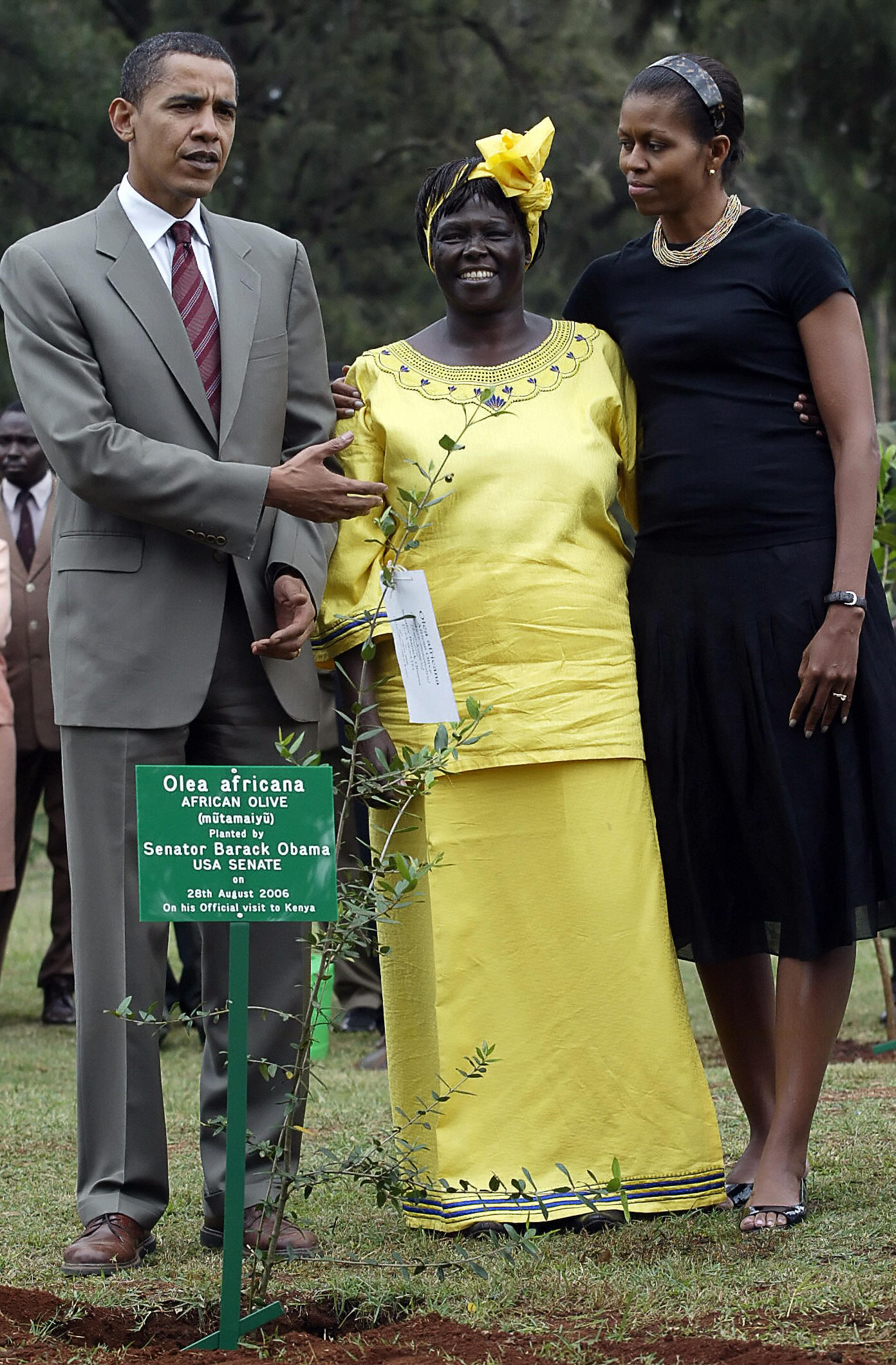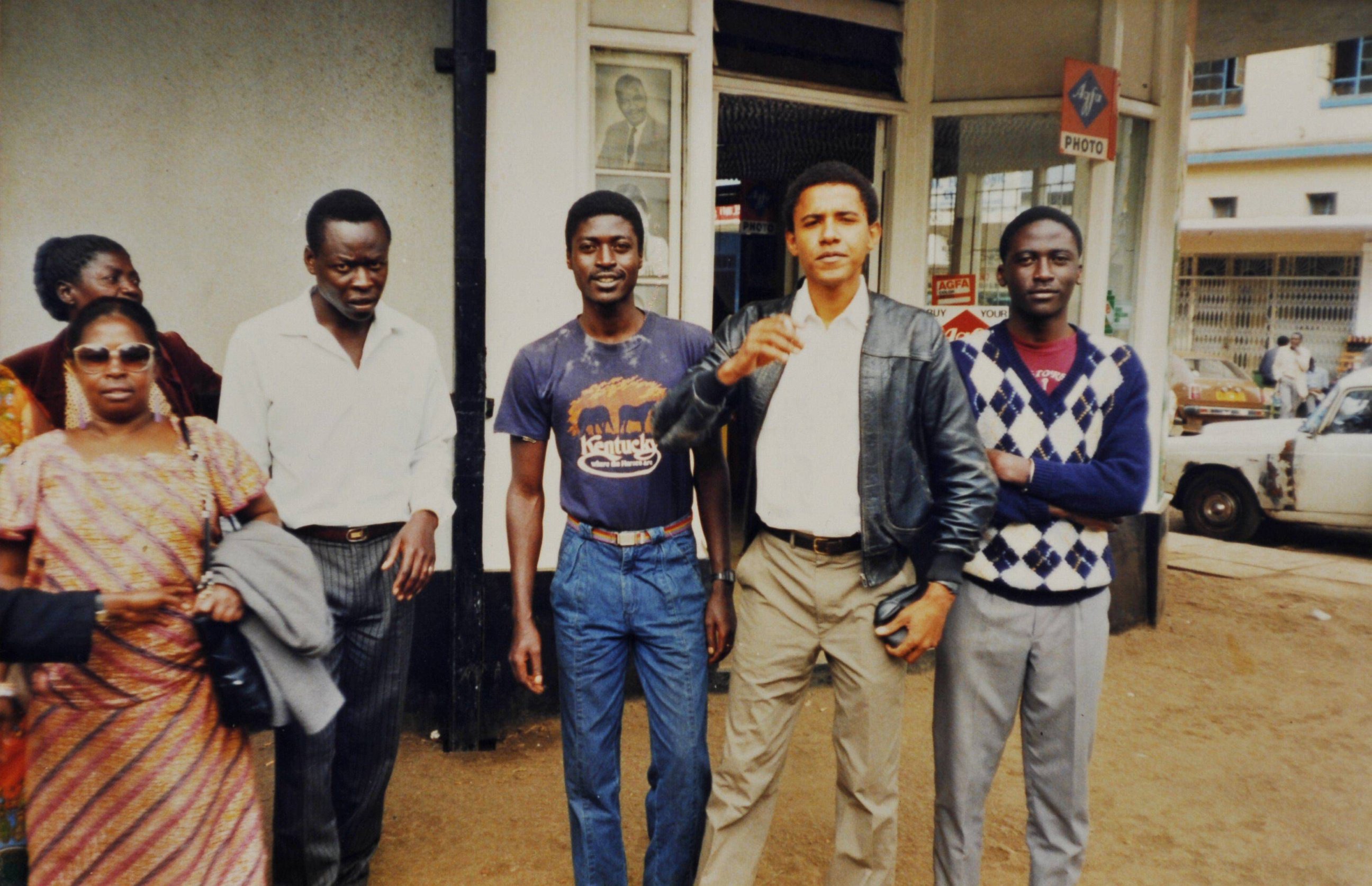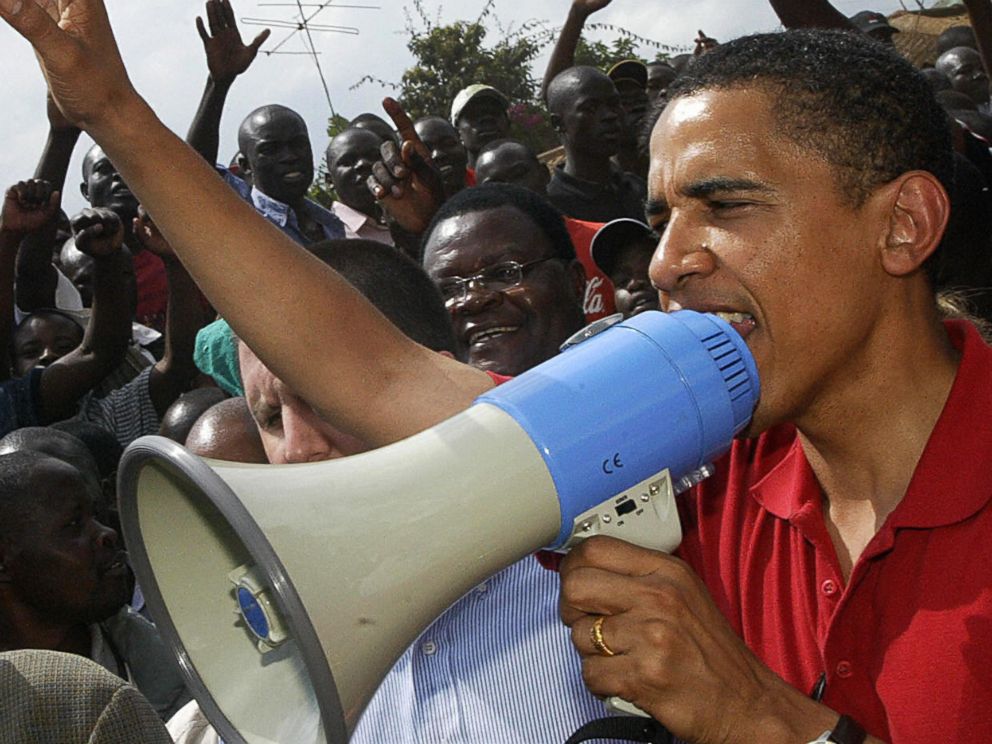Barack Obama's Trips to Kenya: Then vs. Now
Obama's trip to Kenya is a first for history, but a fourth for him, personally.
— -- Barack Obama will make history this weekend as the first sitting U.S. president to visit Kenya, but it’s actually the fourth trip to his father's home country.
The latest visit, more than 25 years after his first, will bring a very different Obama face-to-face with a very different Kenya.

From Lost Luggage to Air Force One
In 1988, at just 27 years old, “Barry,” as he was known, arrived in Nairobi for the first time. He was on a journey of self-discovery to learn more about his heritage and his father, who was Kenyan.
But when his commercial flight landed in an empty airport, he felt “tired” and “abandoned," Obama wrote in his memoir, "Dreams From My Father." A gate agent informed him that the airline had misplaced his bags. And his half-sister, Auma, and Aunt Zeituni picked him up in a beat-up, baby-blue Volkswagen Beetle with a missing muffler.

Fast forward 27 years, and Obama will be arriving on Air Force One and riding around in a heavily armored limousine. This time, he is packed with plenty of staffers, surrounded by security and awaited by Kenya’s president and the rest of the country.
From Family Pilgrimage to Official Business
On his second trip in 1992, Obama traveled with his new fiance, Michelle Obama, as a young lawyer. They were married that October, and, he would later joke, he had to make sure he had his paternal grandmother’s approval, according to one biography.
In “Dreams From My Father,” Obama described drifting through the streets of Nairobi, visiting slums, and going out dancing and drinking. It was a picture of a young man at a pivotal moment in his life, freely wandering through his father’s homeland. He has prolonged, deeply personal conversations with family members and travels extensively around the country.
Even on his 2006 visit to Kenya, when he was greeted with much fanfare and celebrity, then-Sen. Obama was able to move around relatively freely, from cities to villages and through large crowds. He visited his father’s grave and his grandmother’s tin-roof house.
This weekend, it’s strictly business. The first family is not coming with the president, and his schedule is packed with meetings, conferences and state dinners.

From Wandering Tourist to Security Lockdown
Obama will be on a tight schedule during the visit. There will be no village visit. He doesn’t even plan to leave the capital during his whole stay. There's talk that family members will come to him, meeting him before his major speech Sunday or at the hotel, at some point. But there’s also a good chance he won’t see any of them.
He’ll be on even tighter security, too. With the threat of the al-Shabaab militant group in neighboring Somalia and a leak of some of his itinerary, there are raised concerns for his safety. The Secret Service will keep the president in a tight bubble to prevent anything from happening -- something Obama has lamented.
“Visiting Kenya as a private citizen is probably more meaningful to me than visiting as president because I can actually go outside of the hotel room or a conference center,” he said in a July 15 news conference at the White House. “And just the logistics of visiting a place are always tough as president, but it’s obviously symbolically important.”



